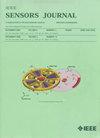A Novel Remaining Useful Life Prognostic Framework Combining Sample Convolutional Interaction Network and Fractal Brownian Motion
IF 4.3
2区 综合性期刊
Q1 ENGINEERING, ELECTRICAL & ELECTRONIC
引用次数: 0
Abstract
Power MOSFETs play a crucial role in power electronic systems, and accurately predicting their remaining useful life (RUL) is fundamentally important for enhancing the reliability, safety, and maintenance planning of such systems. To this end, this article develops an innovative prognostic framework for predicting the RUL of MOSFET devices. First, a power cycle accelerated aging experimental platform under constant shell temperature fluctuation is constructed to obtain the performance degradation parameters of MOSFETs. Second, a sample convolutional interaction network (SCINet) is applied to historical data, learning long-term degradation trends via multistep prediction. Subsequently, a nonlinear fractional Brownian motion (FBM) degradation model is constructed incorporating measurement uncertainties. A state-parameter joint estimation method is then developed by combining a state-space model (SSM) with Kalman filtering, particle filtering and maximum likelihood estimation (MLE). The proposed framework fuses both SCINet predictions and historical observations for self-adaptive updating of states and parameters. A Monte Carlo (MC) simulation scheme, combined with a degradation state recursive strategy, derives the RUL and probability distribution function. Validation of real MOSFET degradation data and performance comparisons against multiple advanced methods demonstrate the efficacy and superiority of this novel prognostic framework. This research meaningfully contributes to more accurate reliability evaluation and improved maintenance planning for MOSFET devices.结合样本卷积交互网络和分形布朗运动的新型剩余寿命预测框架
功率 MOSFET 在电力电子系统中起着至关重要的作用,准确预测其剩余使用寿命 (RUL) 对于提高此类系统的可靠性、安全性和维护规划至关重要。为此,本文开发了一种创新的预报框架,用于预测 MOSFET 器件的 RUL。首先,构建了一个恒定外壳温度波动下的功率循环加速老化实验平台,以获得 MOSFET 的性能退化参数。其次,将样本卷积交互网络(SCINet)应用于历史数据,通过多步预测学习长期劣化趋势。随后,构建了一个包含测量不确定性的非线性分数布朗运动(FBM)退化模型。然后,通过将状态空间模型(SSM)与卡尔曼滤波、粒子滤波和最大似然估计(MLE)相结合,开发出一种状态参数联合估计方法。所提出的框架融合了 SCINet 预测和历史观测数据,实现了状态和参数的自适应更新。蒙特卡罗(MC)模拟方案与退化状态递归策略相结合,得出了 RUL 和概率分布函数。真实 MOSFET 退化数据的验证以及与多种先进方法的性能比较,证明了这一新型预报框架的有效性和优越性。这项研究为更准确地评估 MOSFET 器件的可靠性和改进维护计划做出了有意义的贡献。
本文章由计算机程序翻译,如有差异,请以英文原文为准。
求助全文
约1分钟内获得全文
求助全文
来源期刊

IEEE Sensors Journal
工程技术-工程:电子与电气
CiteScore
7.70
自引率
14.00%
发文量
2058
审稿时长
5.2 months
期刊介绍:
The fields of interest of the IEEE Sensors Journal are the theory, design , fabrication, manufacturing and applications of devices for sensing and transducing physical, chemical and biological phenomena, with emphasis on the electronics and physics aspect of sensors and integrated sensors-actuators. IEEE Sensors Journal deals with the following:
-Sensor Phenomenology, Modelling, and Evaluation
-Sensor Materials, Processing, and Fabrication
-Chemical and Gas Sensors
-Microfluidics and Biosensors
-Optical Sensors
-Physical Sensors: Temperature, Mechanical, Magnetic, and others
-Acoustic and Ultrasonic Sensors
-Sensor Packaging
-Sensor Networks
-Sensor Applications
-Sensor Systems: Signals, Processing, and Interfaces
-Actuators and Sensor Power Systems
-Sensor Signal Processing for high precision and stability (amplification, filtering, linearization, modulation/demodulation) and under harsh conditions (EMC, radiation, humidity, temperature); energy consumption/harvesting
-Sensor Data Processing (soft computing with sensor data, e.g., pattern recognition, machine learning, evolutionary computation; sensor data fusion, processing of wave e.g., electromagnetic and acoustic; and non-wave, e.g., chemical, gravity, particle, thermal, radiative and non-radiative sensor data, detection, estimation and classification based on sensor data)
-Sensors in Industrial Practice
 求助内容:
求助内容: 应助结果提醒方式:
应助结果提醒方式:


